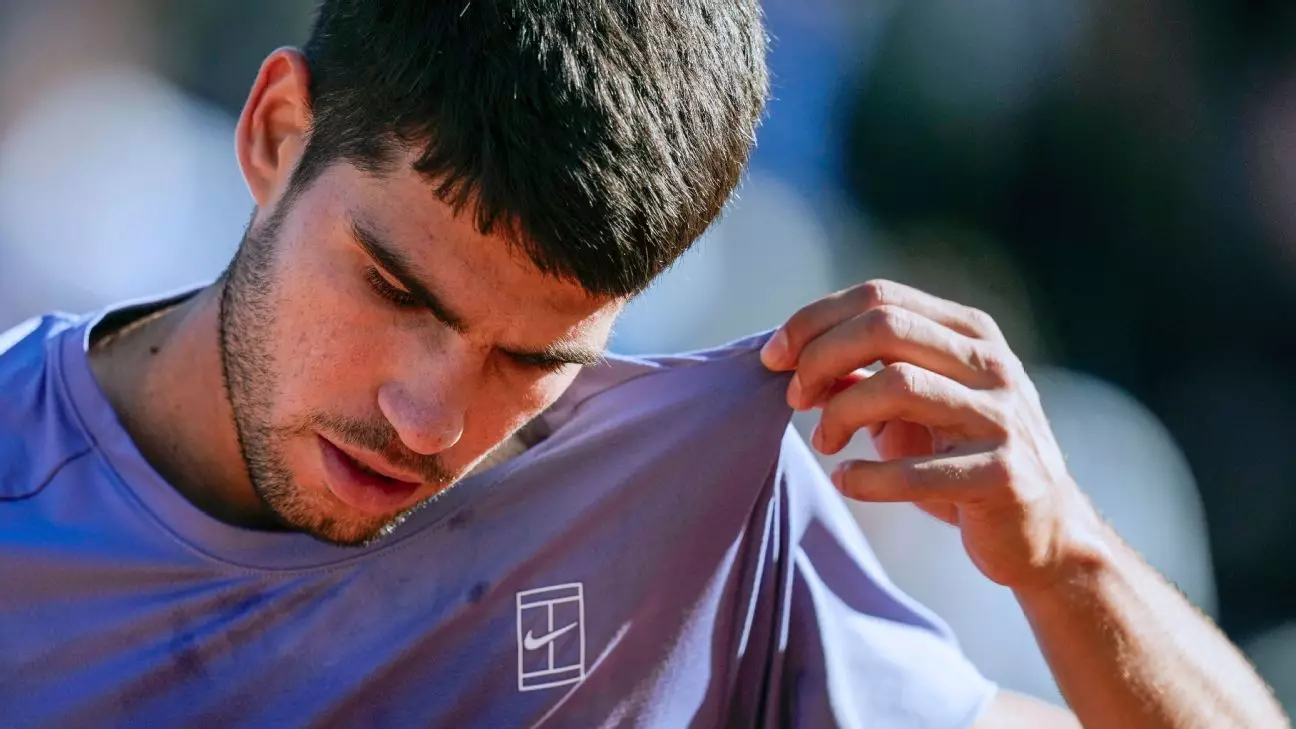Carlos Alcaraz’s Wise Withdrawal: A Lesson in Athlete Management
Hey there, fellow sports enthusiast! Today we’re diving into a fascinating topic that merges the thrill of tennis with the critical aspect of athlete management. If you’re anything like me, you probably have moments where you feel like you need to take a breather—even if it’s from something you love. That’s why Carlos Alcaraz’s recent decision to withdraw from the Madrid Open caught my attention. At just 21 years old, this tennis prodigy is not only dazzling on the court but also making smart decisions off it.
Now, I know what you’re thinking: How can pulling out of a major tournament be considered wise? Well, Carlos has been dealing with some nagging leg injuries, and instead of pushing himself too far, he chose to prioritize his health. It’s a decision that speaks volumes about the importance of knowing when to step back for your long-term well-being. So, grab your favorite drink, get cozy, and let’s explore why this young athlete’s withdrawal is more than just a headline—it’s a lesson for all of us.
Key Takeaways
- Carlos Alcaraz prioritized long-term health over immediate competition by withdrawing from the Madrid Open due to leg injuries.
- His decision highlights the pressures athletes face and the importance of balancing ambition with recovery.
- The withdrawal opens up discussions about athlete management and scheduling in professional tennis.
Balancing Ambition with Recovery
In today’s high-stakes world of tennis, athletes like Carlos Alcaraz often find themselves walking a tightrope between ambition and recovery. The pressure to perform at every event can be immense, even when they’re not at their physical best. Just days before the Madrid Open, Carlos felt he might be ready to compete again but soon realized that his body needed more time to heal. His choice to focus on recovery rather than immediate success is a powerful reminder of the growing awareness among athletes about the significance of health for a successful career.
Alcaraz’s decision isn’t just about him; it’s about shedding light on broader issues within professional tennis. With grueling tournament schedules and little time for rest, players sometimes find their well-being taking a back seat to commercial interests and fan demands. By stepping back, Carlos is prompting an important conversation about how we might better manage athletes’ schedules to ensure they can perform at their best while maintaining their health.

The Path Ahead: Focus on the French Open
Looking ahead, Carlos Alcaraz’s strategic pause should be viewed as an investment in his future rather than a setback. He’s gearing up for another major challenge—the French Open—where he’s already proven himself as a fierce competitor with his victory over Alexander Zverev. Winning Grand Slam titles is undoubtedly significant, but sustaining success requires navigating both wins and losses wisely. This means knowing when to push forward and when to pull back—something Carlos seems to understand intuitively.
As Carlos prepares for Roland Garros, it’s crucial to remember that injuries are part of any athlete’s journey. How they manage these hurdles can define their legacy. With an effective recovery plan in place, Carlos is likely setting himself up for longevity in his sport—something that could allow him to gather even more accolades over time. While missing out on Madrid might seem like a missed opportunity now, it could prove to be the perfect move for his career in the long run.
Final Thoughts
So there you have it—Carlos Alcaraz’s wise withdrawal from the Madrid Open is more than just news; it’s a valuable lesson in athlete management that applies both on and off the court. Whether you’re an armchair athlete or someone who thrives on competition yourself, there’s much we can learn from Carlos’s approach. Sometimes taking one step back is indeed the best way to leap forward—and isn’t that something we could all apply in our own lives? Until next time, keep cheering for your favorite players and maybe give yourself permission to take that much-needed break when you need it!
Carlos Alcaraz tennis athlete management injury recovery


Leave a Reply